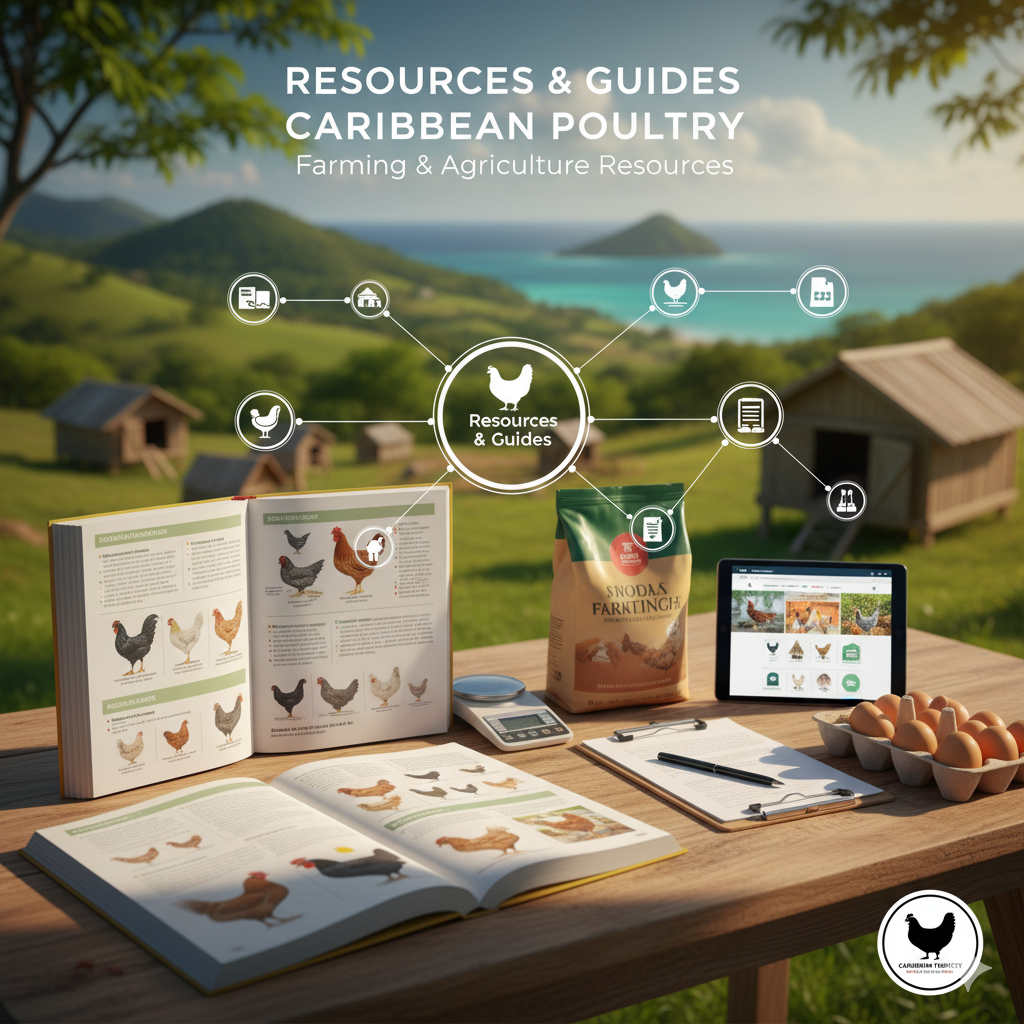Resources & Guides

Resources & Guides | Caribbean Poultry | Farming & Agriculture Resources
Knowledge and resources are the backbone of successful poultry farming in the Caribbean. Farmers—whether smallholders or commercial producers—rely on guides, training, and research to keep their practices efficient, sustainable, and profitable. By providing access to resources and practical guides, the poultry industry ensures that farmers across the region can overcome challenges and embrace opportunities.
Educational resources play a pivotal role. Agricultural extension services, universities, and government agencies often provide workshops, manuals, and training sessions that cover everything from poultry health management to feed optimization. These guides are tailored to the Caribbean’s unique climate and agricultural conditions, ensuring farmers receive advice that fits their environment. For instance, guides often emphasize how to manage poultry under high temperatures, reduce water stress, and prevent tropical diseases.
Digital platforms are increasingly important as well. Many Caribbean farmers now access online resources, including YouTube tutorials, downloadable farming manuals, and mobile apps designed to track flock health and feed consumption. These digital tools empower farmers with real-time knowledge and help them make informed decisions without needing constant face-to-face training.
Practical guides often focus on core aspects of poultry farming. Topics include brooding management, proper housing design, feeding programs, and vaccination schedules. Step-by-step guides make these topics easy to understand, even for farmers with little formal education. By following these resources, farmers can reduce mortality rates, improve egg production, and increase overall profitability.
Another valuable resource is financial guidance. Many smallholder farmers struggle with access to credit or loans needed for farm expansion. Organizations and cooperatives often publish financial planning guides that teach farmers how to budget for feed, housing, and veterinary costs while maximizing returns. These resources empower farmers to view poultry farming not just as a tradition, but as a business opportunity.
Community-based resources also play an important role. Farmer cooperatives and local associations provide peer-to-peer learning platforms where knowledge and experiences are shared. For example, experienced farmers may teach newcomers how to identify early signs of disease, manage costs, or build low-cost chicken coops. These community connections create resilience and foster collaboration in the industry.
Beyond printed and digital guides, mentorship and on-the-ground training programs are invaluable. Young farmers are often paired with experienced poultry producers who can offer personalized advice. Such programs ensure knowledge transfer between generations and preserve the cultural practices unique to the Caribbean while integrating modern advancements.
Ultimately, resources and guides are about empowerment. By giving farmers the tools they need—educational, financial, and practical—the Caribbean poultry sector ensures that challenges such as feed costs, disease outbreaks, and climate risks are met with solutions. Access to reliable information transforms farming from a gamble into a strategic, sustainable practice that secures both livelihoods and food security across the region.